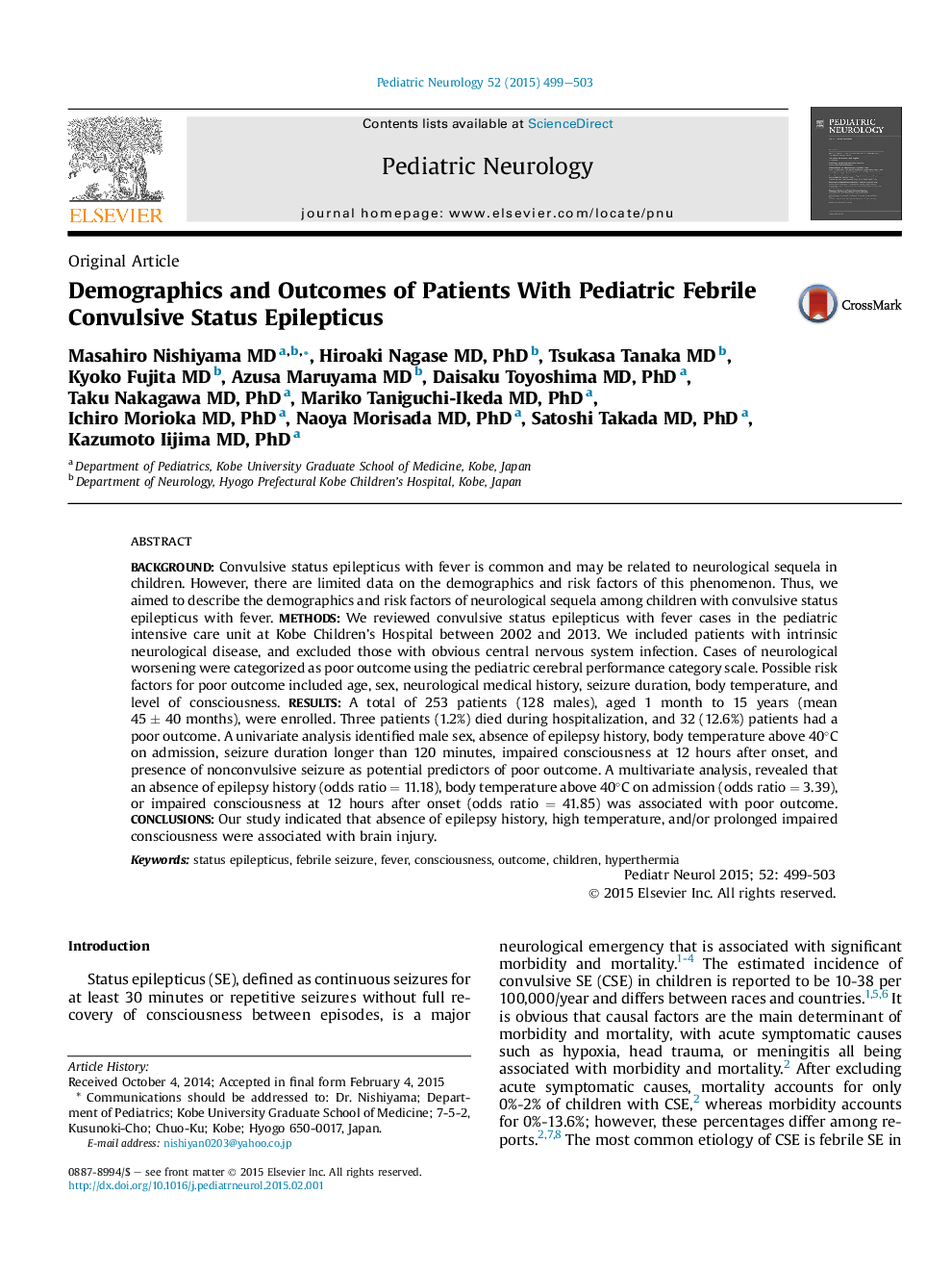| کد مقاله | کد نشریه | سال انتشار | مقاله انگلیسی | نسخه تمام متن |
|---|---|---|---|---|
| 3084536 | 1189772 | 2015 | 5 صفحه PDF | دانلود رایگان |
BackgroundConvulsive status epilepticus with fever is common and may be related to neurological sequela in children. However, there are limited data on the demographics and risk factors of this phenomenon. Thus, we aimed to describe the demographics and risk factors of neurological sequela among children with convulsive status epilepticus with fever.MethodsWe reviewed convulsive status epilepticus with fever cases in the pediatric intensive care unit at Kobe Children's Hospital between 2002 and 2013. We included patients with intrinsic neurological disease, and excluded those with obvious central nervous system infection. Cases of neurological worsening were categorized as poor outcome using the pediatric cerebral performance category scale. Possible risk factors for poor outcome included age, sex, neurological medical history, seizure duration, body temperature, and level of consciousness.ResultsA total of 253 patients (128 males), aged 1 month to 15 years (mean 45 ± 40 months), were enrolled. Three patients (1.2%) died during hospitalization, and 32 (12.6%) patients had a poor outcome. A univariate analysis identified male sex, absence of epilepsy history, body temperature above 40°C on admission, seizure duration longer than 120 minutes, impaired consciousness at 12 hours after onset, and presence of nonconvulsive seizure as potential predictors of poor outcome. A multivariate analysis, revealed that an absence of epilepsy history (odds ratio = 11.18), body temperature above 40°C on admission (odds ratio = 3.39), or impaired consciousness at 12 hours after onset (odds ratio = 41.85) was associated with poor outcome.ConclusionsOur study indicated that absence of epilepsy history, high temperature, and/or prolonged impaired consciousness were associated with brain injury.
Journal: Pediatric Neurology - Volume 52, Issue 5, May 2015, Pages 499–503
